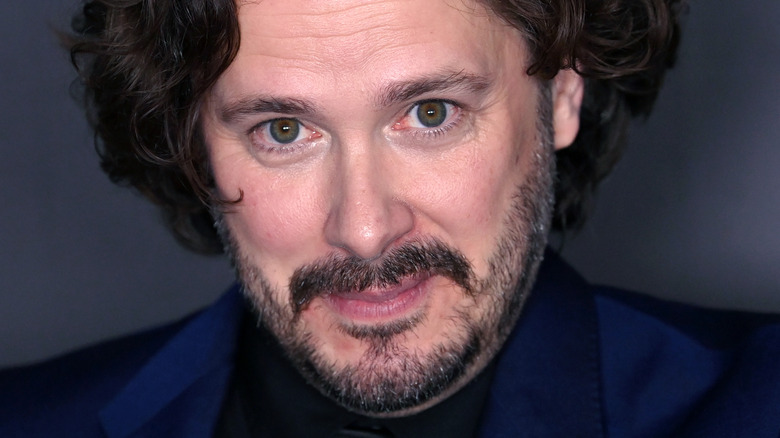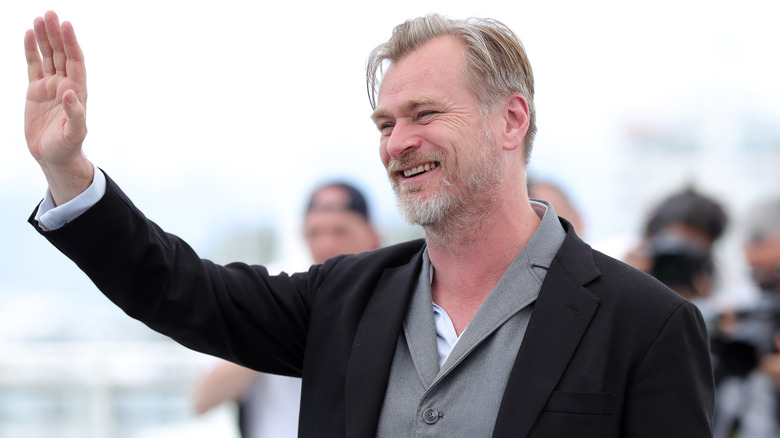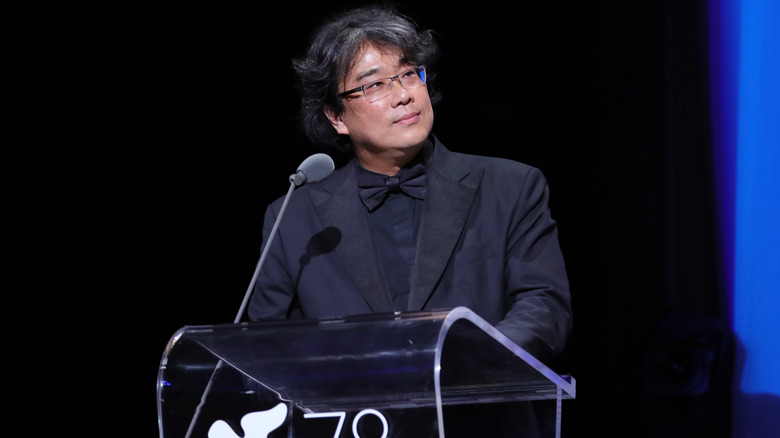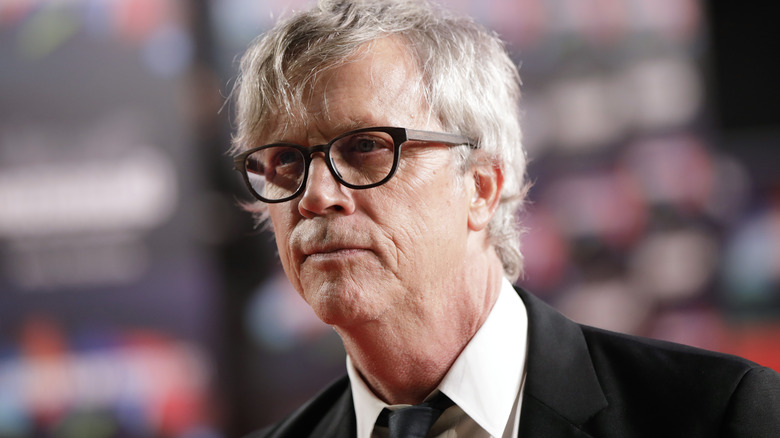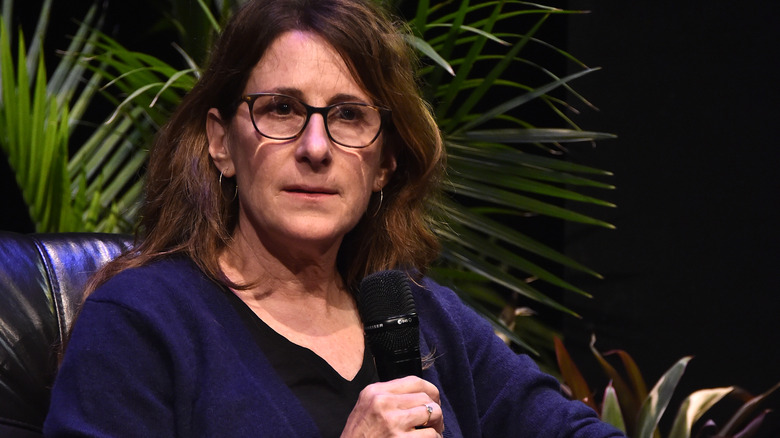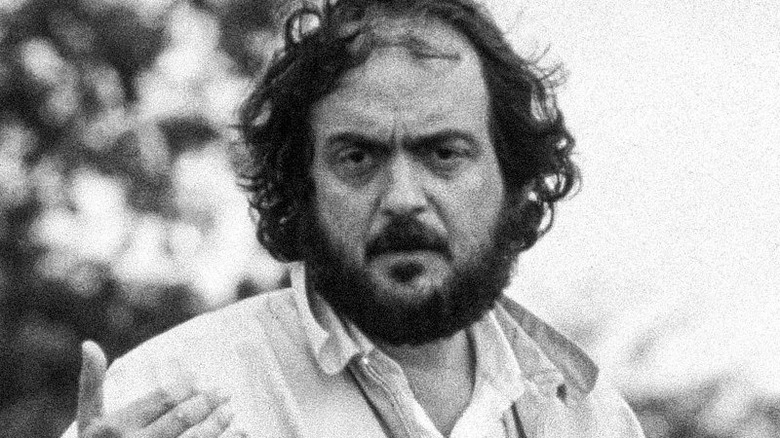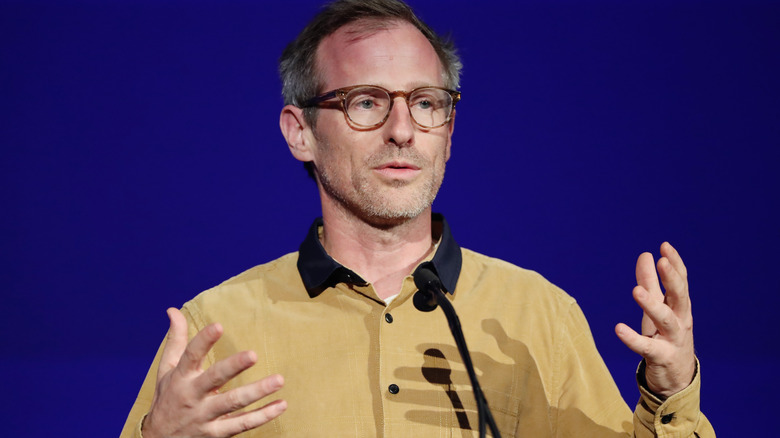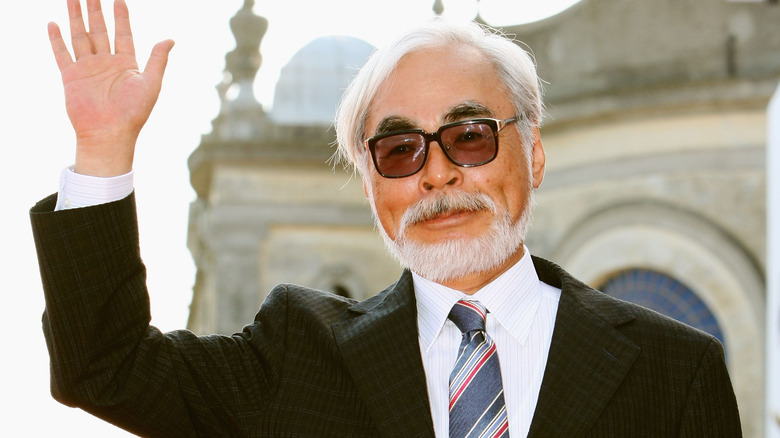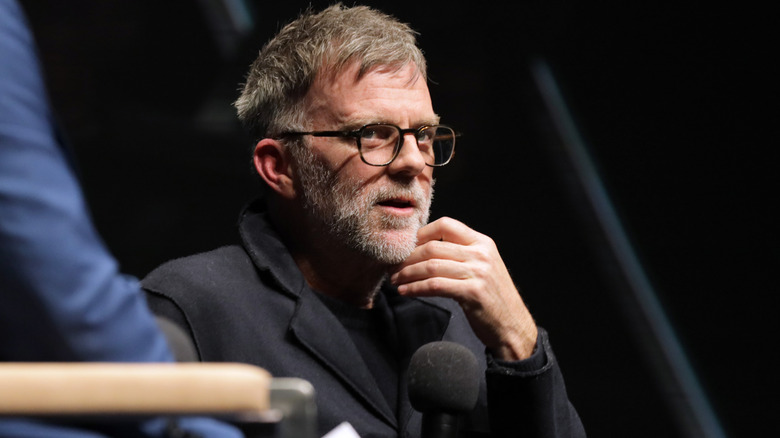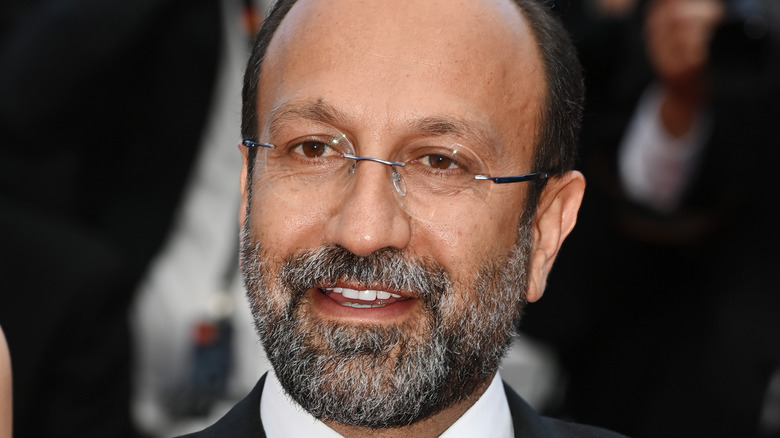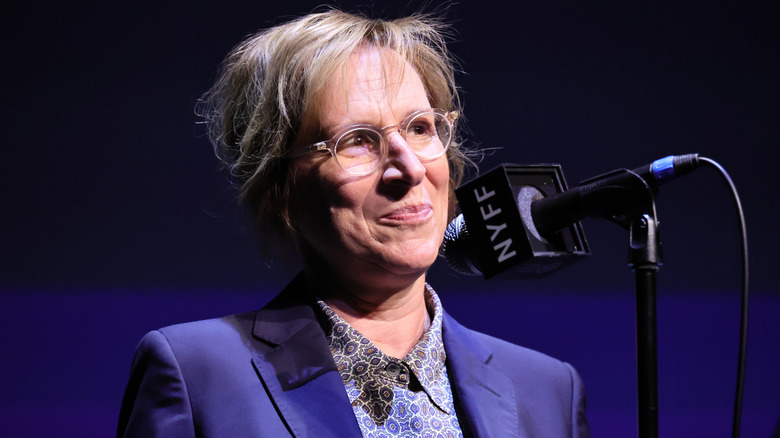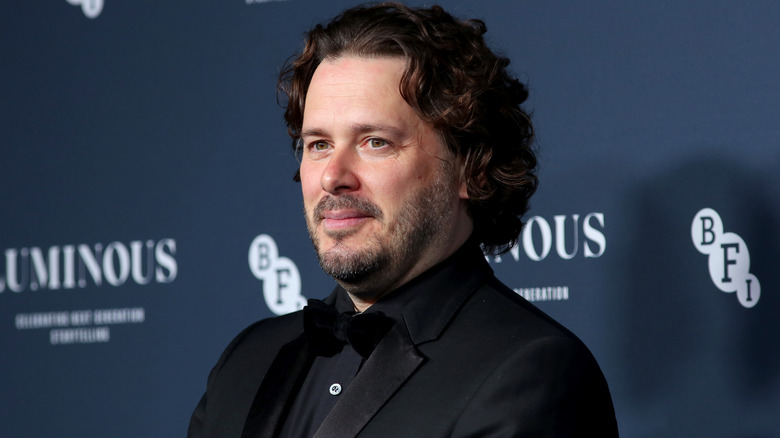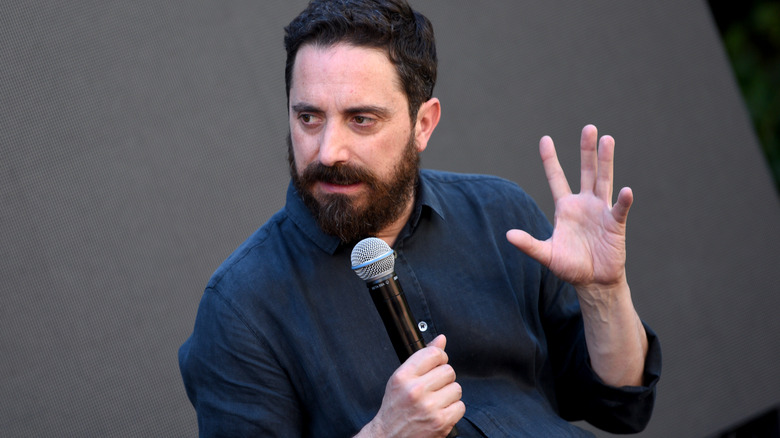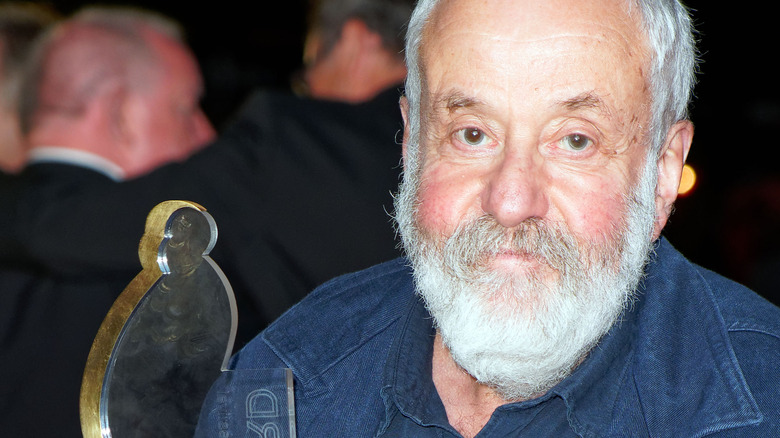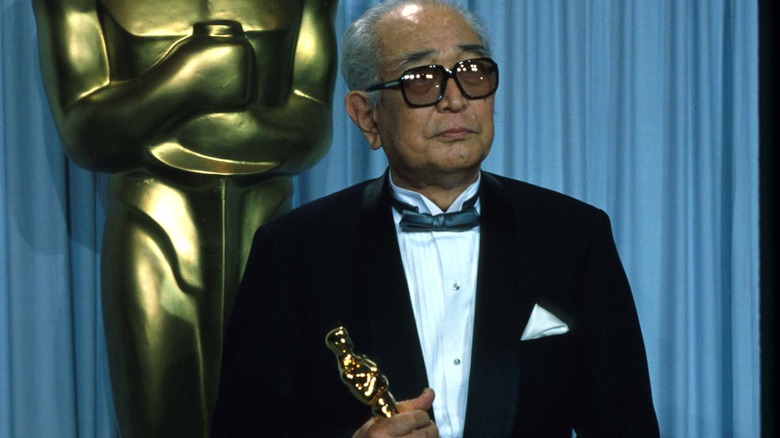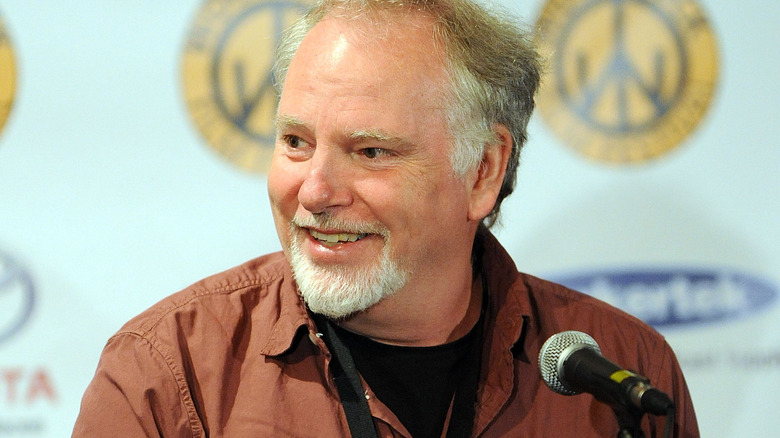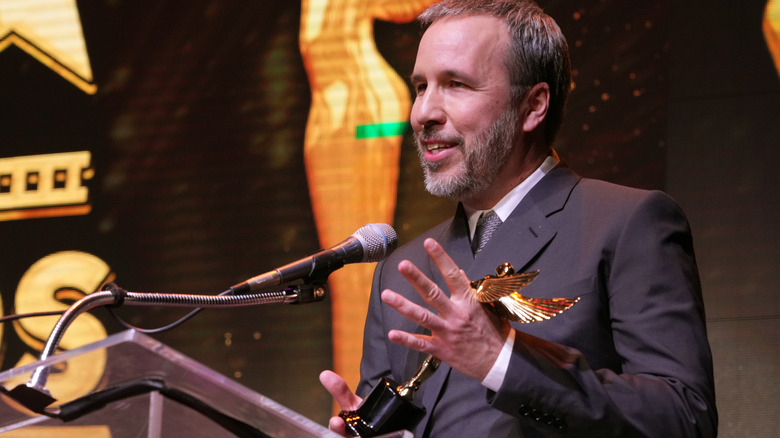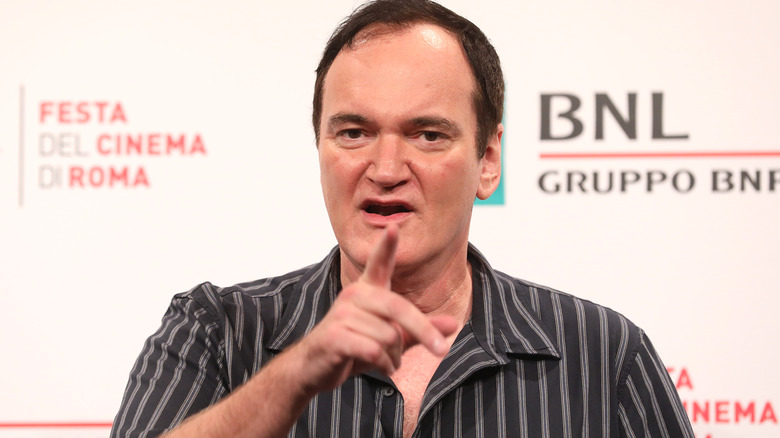Directors That Have Never Directed A Rotten Movie
Plenty of directors have a large number of great movies under their belts. But it's a rare breed of filmmaker who has directed five or more movies without there being a stinker in the bunch. Even those who are known for consistent excellence — Steven Spielberg, James Cameron, Martin Scorsese, et al — more often than not have a couple of duds in the mix, either one from early in their career when they were still learning the trade, or a later-career misstep where a project got away from them a bit. There are a select few, however, that have yet to direct a single objectively poor film.
Now, there is no accounting for personal taste, and plenty of articles exist that proclaim to list directors who have yet to make a bad movie — but that distinction typically comes down to at least a certain degree of opinion on the part of the writer(s). So we thought it would be interesting to take a more consensus-based angle on this topic, and view the work of acclaimed directors in terms of how critics have perceived their output. As a result, we have come up with a list of directors who have directed a minimum of five films, and have yet to helm a single feature that has earned a "rotten" score on Rotten Tomatoes.
Christopher Nolan
Following a somewhat similar career trajectory to Tim Burton, Christopher Nolan first established himself with acclaimed, quirky indies like "Following" and "Memento" before diving into big-budget Hollywood filmmaking with a fresh take on DC Comics' famous Caped Crusader. Nolan's "Batman Begins" not only rescued the titular character from movie purgatory, following the disastrous "Batman and Robin" eight years earlier, but it helped to mature the superhero film genre and forced even the most reluctant critics to finally embrace it.
Between subsequent entries in his "Dark Knight" trilogy — including the second one, which earned Heath Ledger a posthumous Oscar and is still considered one of the best films in the genre to date — Nolan also still managed to deliver complex and excellent originals like "The Prestige" and "Inception." The sci-fi thriller "Tenet" is his lowest-rated directorial effort so far, but even that was called "a visually dazzling puzzle for film lovers to unlock" by critics, who kept his perfect record of "fresh" movies intact.
Bong Joon-ho
Everyone has a different point at which they first took notice of South Korean filmmaker Bong Joon-ho. The more indie-minded were there from the beginning, already appreciating his work on the 2000 dark comedy "Barking Dogs Never Bite." Foreign horror film lovers more likely got their first exposure to Bong with his acclaimed 2006 monster movie "The Host." And those who don't do subtitles probably didn't see his name in the credits of a movie until they saw it at the front of 2013's "Snowpiercer."
It's gone on like that for Bong, who jumps across genres and directs one excellent movie after another, sooner or later bound to make something that'll appeal to any kind of movie fan. By virtue of being on Netflix, his animal rights adventure movie "Okja" further expanded his global reach, and that mission was certainly cemented by the time "Parasite" won Best Picture, Director, and Screenplay Oscars in 2020.
Todd Haynes
Who would have predicted that the guy who made that notorious short film about doomed pop star Karen Carpenter, which used Barbie dolls as actors, would eventually be one of the most acclaimed filmmakers of the last 30 years? Indeed, from the moment Todd Haynes entered the world of feature-length movie directing with the expectedly bizarre horror movie "Poison," he established himself as an always challenging but never disappointing filmmaker.
1995's "Safe" was another little-seen but critically acclaimed effort from Haynes, followed by the movie that arguably put him on the map — his 1998 ode to glam rock excess, "Velvet Goldmine." Never one to rest on his laurels, subsequent films he's directed include a period piece ("Far From Heaven"), a legal thriller ("Dark Waters"), a Christmas-themed queer love story ("Carol"), and a Bob Dylan biopic where the subject is played by six different actors, including a woman ("I'm Not There").
Nicole Holofcener
"You Hurt My Feelings," the latest movie from filmmaker Nicole Holofcener, is already earning raves — just the most recent in a celebrated career full of intimate stories about relationships and the human experience. Holofcener did dabble in epics when she helped Matt Damon and Ben Affleck write the screenplay for the acclaimed "The Last Duel," something that is worth mentioning as proof of how varied her talents are.
On the whole, though, Holofcener's filmmaking career has been one of ensemble dramadies that often don't have a particular "hook" but are instead just kind of about characters having careers, relationships, and lives in general. Her 1996 debut, "Walking and Talking," set this precedent immediately, as well as beginning a fruitful collaboration with actress Catherine Keener that would carry on for Holofcener's next four consecutive films. Holofcener also directed James Gandolfini's touching performance in "Enough Said," dedicating the film to him as he passed away before its release.
Stanley Kubrick
Stanley Kubrick was known for being a perfectionist. He was also known for sometimes physically and psychologically torturing his actors to get the performances he wanted out of them. Few people would agree that literal abuse is a necessary evil for making a great movie, but there's no denying that Kubrick knew how to deliver the goods in the end.
The interesting thing about the adoration Kubrick receives is that he largely didn't come to it until later in his career, with several of his eventually-hailed masterpieces not being well-liked at the time of release. He was actually nominated for a Worst Director Razzie for "The Shining," for instance, while movies like "A Clockwork Orange" and "2001: A Space Odyssey" received highly polarized critical responses initially. However, reappraisals of his catalog have been almost unanimously positive, and all of the movies he directed eventually moved into fresh territory.
Spike Jonze
After getting his start directing some of the most inventive music videos of the 1990s — including "Sabotage" by the Beastie Boys, often considered one of the best videos of all time — Spike Jonze couldn't have picked a better feature directorial debut than the surreal dark comedy "Being John Malkovich." After earning a Best Director Oscar nomination his first time out, Jonze smartly decided that the second movie he directed should also be a Charlie Kaufman-penned work, resulting in the critically acclaimed "Adaptation."
After spending a few years messing around with the "Jackass" crew — one of the stranger aspects of his career, to be sure — Jonze wrote and directed the well-received live-action adaptation of the beloved children's book "Where the Wild Things Are." Other than several highly-rated documentaries, Jonze has since only directed one more feature film — the 2013 sci-fi romance "Her," which once again earned raves and nabbed Jonze a Best Original Screenplay Oscar.
Hayao Miyazaki
People sometimes don't give enough attention or credit to those who direct animated movies. Even those who count "Beauty and the Beast" or "Toy Story" among their favorite films might struggle to name the directors of those movies. But even if you've never seen any of his movies or any anime movies, there's a pretty good chance you know the name Hayao Miyazaki.
Miyazaki has directed an impressive 12 animated films in his career, most of them for the famed Studio Ghibli animation house that he co-founded. Among his films are some of the most beloved animated films of all time — anime or otherwise — such as "Spirited Away," "Princess Mononoke," and "My Neighbor Totoro." Miyazaki has also written every film he has directed so far, which also makes him something of a rarity in the animation world. Despite being in his 80s (and having previously retired), he remarkably has another film on the way in 2023.
Paul Thomas Anderson
For a director whose debut film — "Hard Eight" — came out in 1996, it might surprise people when they realize that Paul Thomas Anderson has only made nine feature films in his entire career so far. But the results speak for themselves, as all but one of his films hold the "certified fresh" distinction, with the other falling just short of doing so.
Anderson's second film, "Boogie Nights," is the one that really launched him into the critical acclaim stratosphere and earned him his first of many Oscar nominations. In fact, "Punch-Drunk Love" is the only movie of his to not get at least two Oscar noms. However, it was with that movie that the world first noticed that Adam Sandler had genuine acting chops, and it wouldn't be the only time Anderson directed a career-best performance — Burt Reynolds got his first and only Oscar nomination for "Boogie Nights," ditto for Lesley Manville in "The Phantom Thread."
Asghar Farhadi
In a year that also saw the release of movies like "The Artist," "The Tree of Life," and "Harry Potter and the Deathly Hallows, Part 2," it's really saying something that "A Separation" was 2011's best-reviewed film. With it, Iranian writer-director Asghar Farhadi delivered one of the most honest looks ever seen on film of the complex personal and moral challenges that accompany the dissolution of a marriage.
Far from a one-hit wonder, "A Separation" isn't even Farhadi's highest-ranking entry on Rotten Tomatoes. That distinction belongs to 2006's "Fireworks Wednesday," another film that expertly examines relationships, marriage, and all of the related messiness therein. If there is a common thread throughout all of his films, it's that they're typically about people in relatable situations who are trying to do what they think is right, only to face various forms of adversity that cause everything to fall apart — but never in an exaggerated or unrealistic manner.
Kelly Reichardt
If you're an impatient movie watcher who needs things to "get going" as quickly as possible, then the filmography of writer-director Kelly Reichardt isn't for you. However, if you love to just sit back and let a movie slowly unfold before you, taking its time and having long stretches where no big things happen — but ultimately being deeply rewarded when everything finally comes together — there are few who do that better than Reichardt.
After working with mostly little-known indie actors for her first two films, Reichardt cast Michelle Williams as the lead in her 2008 drama "Wendy and Lucy" and that helped a lot more people to find her work. Reichardt described her films to The Guardian as "just glimpses of people passing through," which perfectly describes her work — fairly brief, sometimes completely arbitrary moments in characters' lives where we just sort of visit them for a couple of hours and move on.
Edgar Wright
After working with Simon Pegg and Nick Frost on the cult hit TV series "Spaced," Edgar Wright teamed with them again for his pitch-perfect zombie movie spoof "Shaun of the Dead." Remarkably, he'd repeat that trick to equal creative success for follow-up "Hot Fuzz," which did to and for action movies what "Shaun" did to scary ones. He'd take a few years off before finishing up the so-called Cornetto Trilogy strong with "The World's End," making a little movie called "Scott Pilgrim vs. the World" in the interim.
After leaving Cornetto and movies that felt like living video games behind, Wright was more than ready to prove that he had matured as a filmmaker with the excellent car heist romp "Baby Driver" and the mesmerizing psychological thriller "Last Night in Soho." For good measure, he threw an acclaimed documentary about longtime cult favorite band Sparks into the mix as well.
Pablo Larraín
It's not easy to make a warts-and-all biopic about a figure as beloved as Princess Diana, but director Pablo Larraín was up to the task with his 2021 film "Spencer." The movie earned raves, particularly for Kristen Stewart's performance as the title character at a particularly challenging period in Diana's life. Of course, existing fans of Larraín's work were probably not surprised that he pulled it off, given his history at both delivering inventive biopics and also making movies about remarkable women.
In fact, he previously did both when he directed Natalie Portman's celebrated performance in "Jackie." In his 2016 film "Neruda," Larraín played with the biopic format in refreshingly original ways to tell a story about poet and diplomat Pablo Neruda. In 2021, the same year he did "Spencer," he stepped outside his comfort zone and directed all eight episodes of the AppleTV+ adaptation of Stephen King's "Lisey's Story," which earned Larraín his first and only "rotten" score — although his films all remain on the "fresh" side of the ledger.
Mike Leigh
Though he's yet to make a movie in the 2020s, British filmmaker Mike Leigh's work still spans an impressive five decades. His debut film was 1971's BBC telepic "Bleak Moments," though he wouldn't embark on his feature film career proper until the late 1980s. Leigh's first few movies were mostly hits in his native England, and it wouldn't be until 1996's "Secrets and Lies" — and its five Oscar nominations, including Best Director and Screenplay for Leigh — that the filmmaker finally got some notice on this side of the pond.
In 1999, Leigh wrote and directed the period drama "Topsy-Turvy," adding another Best Screenplay Oscar nomination to his bona fides. The 2000s would prove an especially successful period for Leigh in terms of worldwide recognition, with both "Vera Drake" and "Happy-Go-Lucky" adding to Leigh's list of Oscar nominations. There was talk of Leigh working on a new movie in 2020 (per Film Stories), but there's no word since on what happened to that project or if it'll ever be revisited. Either way, if he retired today, he leaves behind a body of work that he can be extremely proud of.
Akira Kurosawa
Most of the directors on this survey managed to stay off the "rotten" list while also being relatively reserved with their directorial output. Akira Kurosawa, on the other hand, left behind a body of work in which he directed nearly 30 movies without a single one of them being considered bad. In fact, a strong case can be made that Kurosawa is responsible for more films that are universally recognized as masterpieces than any other single director in history.
It's hard to know where to even start when explaining Kurosawa's greatness. Several other all-time classic films are essentially remakes of — if not heavily inspired by — Kurosawa's own incredible movies. "The Magnificent Seven"? That's Kurosawa's "Seven Samurai" as a Western. The original "Star Wars" movie? Heavily inspired by Kurosawa's "The Hidden Fortress." "A Fistful of Dollars"? Basically Kurosawa's "Yojimbo." On it goes, with almost every director that came after him owing more than a little to being a Kurosawa fan and trying to emulate one of his films or his overall approach to filmmaking.
Guy Maddin
In his review of "The Saddest Music in the World," Roger Ebert wrote, "You have never seen a film like this before, unless you have seen other films by Guy Maddin." That pretty much sums up Maddin's work — impossible to compare to anything else but his other movies.
There are few avant garde filmmakers on the level of Guy Maddin who make bizarre, challenging, completely unorthodox movies but still manage to make them all actually be good movies. Experimental directors aren't hard to come by, but to be experimental and yet still make a compelling and watchable film is no easy feat. But Maddin has been doing exactly that for over 30 years now, from 1988's "Tales from the Gimli Hospital" to 2017's "The Green Fog," literally a film collage of existing movies and TV shows. Again, it's something only Guy Maddin could pull off — or would even consider attempting.
Denis Villeneuve
If Denis Villeneuve had done nothing else in his career other than successfully redeem the "Dune" franchise and create a decades-later sequel to "Blade Runner" that might actually be better than the original, he still would have gone down as a legend. But remarkably, there is so much more to Villeneuve's talents than just "Blade Runner 2049" and "Dune" in 2021.
After a decade of making acclaimed French-Canadian dramas, Villeneuve made a stunning American debut with the underrated "Prisoners" in 2013. Between that and "Blade Runner," he had a remarkable run with "Enemy," "Sicario," and "Arrival," the last of which earned him his first Best Director Oscar nomination. While the box office underperformance of "Blade Runner 2049" was unfortunate, it certainly wasn't a result of the movie's quality — and Villeneuve would finally achieve both box office and critical success with "Dune." Who would have ever thought, in 2023, we'd all be looking forward to a "Dune" sequel? Thank Villeneuve for that.
Quentin Tarantino
Even the best directors typically have to make one or two merely "good" films before they find their creative footing and show what they can do. Quentin Tarantino didn't have time for all that. Instead, he released one of the most stunning directorial debuts in the history of film with "Reservoir Dogs," showing that he was already a fully-formed and self-assured filmmaker right from the start.
Tarantino then managed to forgo the dreaded sophomore slump with "Pulp Fiction," which is where he first truly broke through to the mainstream in a big way. "Jackie Brown" was a bit misunderstood at the time, but reappraisals have since given it its due. Meanwhile, Tarantino silenced anyone who thought his career was already on the decline with a two-part martial arts epic called "Kill Bill," as well as the Oscar-friendly historical melodramas "Inglourious Basterds" and "Django Unchained." Even his so-called lesser films, like "The Hateful Eight," still come certified fresh, and he's always ready to rebound with something like "Once Upon a Time in Hollywood" to remind us that he hasn't remotely lost his touch.
